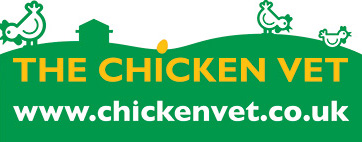Summer Safety
Summer is here!! For us and our furry friends, this means lots more outdoor fun! To help your pets stay safe this summer, please take a look at our tips and advice on avoiding Summer dangers.
Hot Weather
Dogs find it much harder to cool down compared to humans. Dogs such as Brachycephalic dogs, (eg. Boxer, Pug, Bulldog) overweight dogs or dogs with any laryngeal disease will find it even harder. This can lead to heatstroke which can be fatal.
Signs of heatstroke
- Increased breathing rate, excessive panting.
- Dry or sticky gums.
- Abnormal gum colour.
- Bruising of the gums.
- Being lethargic or disorientated.
- Drooling.
- Vomiting and diarrhoea.
Treatments
- Get your dog to us as soon as possible.
- Move your dog to a cool environment .
- Pour water over your dog – avoid very cold water, ideally 15-16°c.
- Place cool, wet towels under your dog, never over as they can trap heat.
- Offer cool water.
Prevention
- Never leave your pet unsupervised outside on hot days.
- Make sure they have access to cool areas indoors.
- Walk early in the morning or late at night.
- Do not leave your dog in the car.
- Make sure they have access to shade and water when playing outdoors.
- Have frequent stops on car journeys for drinks.
- Using ice cubes/frozen kongs etc as treats or freezing their food can help.
At The Beach
Salt water
Many dogs love to swim and play in the sea but they may inadvertently (or in some cases purposefully) swallow sea water. This can cause salt poisoning which could result in vomitting, fits, kidney disease and even death.
Prevention
Try to limit their time in the water and have plenty of fresh water available to quench their thirst and help dilute any salt water swallowed.
Sand
Sand can also be inadvert ently swallowed through digging and playing with sandy toys. If swallowed in large quantities this could cause an intestinal blockage.
Prevention
Try to keep toys as clean as possible and limit fetch games. Give your dog a thorough rinse after the beach as the sand may irritate their skin.
Palm Oil
This is often washed up onto the shoreline in solid nuggets. It can cause vomitting, diarrhoea and pancreatitis.
Prevention
If you see your dog eating a hard, white, chalky substance which smells a little like diesel stop them immediately.
Sunburn
Dogs get sunburn just like we do. The nose, ears, underbelly or any other areas with fur missing can be affected. Dogs with pale coloured skin in these areas are at high risk.
Prevention
Apply pet-safe suncream. This needs to be zincoxide and PABA (paraminobenzoic acid) free. Limit time in the sun.
Out On Walks
Pavement and Roads
On hot days the tarmac and paving slabs absorb the sun’s heat much faster than the air or grass around them. Dogs feet can be burned by walking on these surfaces.
Prevention
Place the back of your hand on the surface for 7 secconds and if you struggle to hold it down, its too hot for your dog.
Blue Green Algae
This bacteria forms on the top of lakes and ponds but often cannot be seen with the naked eye. It thrives during dry weather. The toxins it produces can cause vomitting, diarrhoea, drousiness, twitching, breathing problems, liver, kidney and heart issues and in some cases death.
Prevention
Avoid bodies of water especially if there seems to be a change of colour in the water. Keep your dog well away as the wind often blows the blooms to the edges.
Toads
Toads can release poisonous venom from glands on their skin when touched. This can be very harmful for your dog.
In the Garden
Barbeques
It is very easy to take your eye off the ball when having fun at a barbeque but you can guarentee your 4-legged friends won’t! barbeque foods contain a lot of seasonings and fats that could cause gut upsets. Swallowing kebab skewers, corn on the cobs and eating cooked bones or raw meat can be very dangerous as well as the potential for burns if getting too close to the barbeque.
Plants and flowers
Several summer bloomers are potentially toxic if consumed by your dog such as; poppies, clematis, peonies, foxgloves, geraniums, chrysanthemums, oleanders and yew.
Slug and snail pellets, ant killer and weed killer
These are all toxic to dogs. If your dog comes into contact with any of these please call us immediately (please bring the bottle of the product they have consumed with you). Ideally use ‘Pet Safe’ alternatives.
Compost
This is full of highly toxic mould which could be very harmful.
If you have any questions or concerns regarding your pet’s health and safety in the sun please do not hesitate to contact us.
We hope you and your pets have a wonderful, fun packed summer!
Adders
The European adder is the only venomous snaike native to the UK. Adults are up to two feet (0.6m) long and have a black or brown Zig-zag pattern along their back, and a V-shaped marking on the back of their head. They can be found throughout mainland Britian, most commonly on dry sandy heaths, sand dunes, rocky hillsides, moorlands, in long grass, around stone walls and the edges of woodlands.
Adders generally hibernate for October to late April, waking up as the weather warms up as they like to bask in the sun. they are most active in the early afternoon after the midday heat. They only bite in self defence, for instance when they are stepped on accidentally or disturbed by an inquisitive dog.
What happens if your dog is bitten by an adder?
The symptoms of an adder bite can vary, but common signs to watch for include:
- Rapid swelling around the bite site which is often on the legs, head or neck.
- Pain around the affected area.
- Lethargy or weakness.
- Vomiting or possibly drooling.
- Bruising or bleeding.
- In severe cases breathing difficulties and collapse.
What to do if your pet is bitten by an adder?
It is very natural to feel very distressed, but staying as calm as possible and acting quickly will be of most help to your pet.
- Do not interfere with the bite.
- Avoid applying a tourniquet.
- Even if your pet seems well, get them to us as soon as possible. Early intervention is key to ensuring the best the best outcome for your pet.
The venom can cause serious complications, including blood clotting issues, heart beat irregularities and breathing problems.
Your pet will be thoroughly examined to assess the location of the bite and extent of the injury. Pain relief and supportive care will be given immediately. Antivenom may be used especially in severe cases.
-
Previous
-
Next



